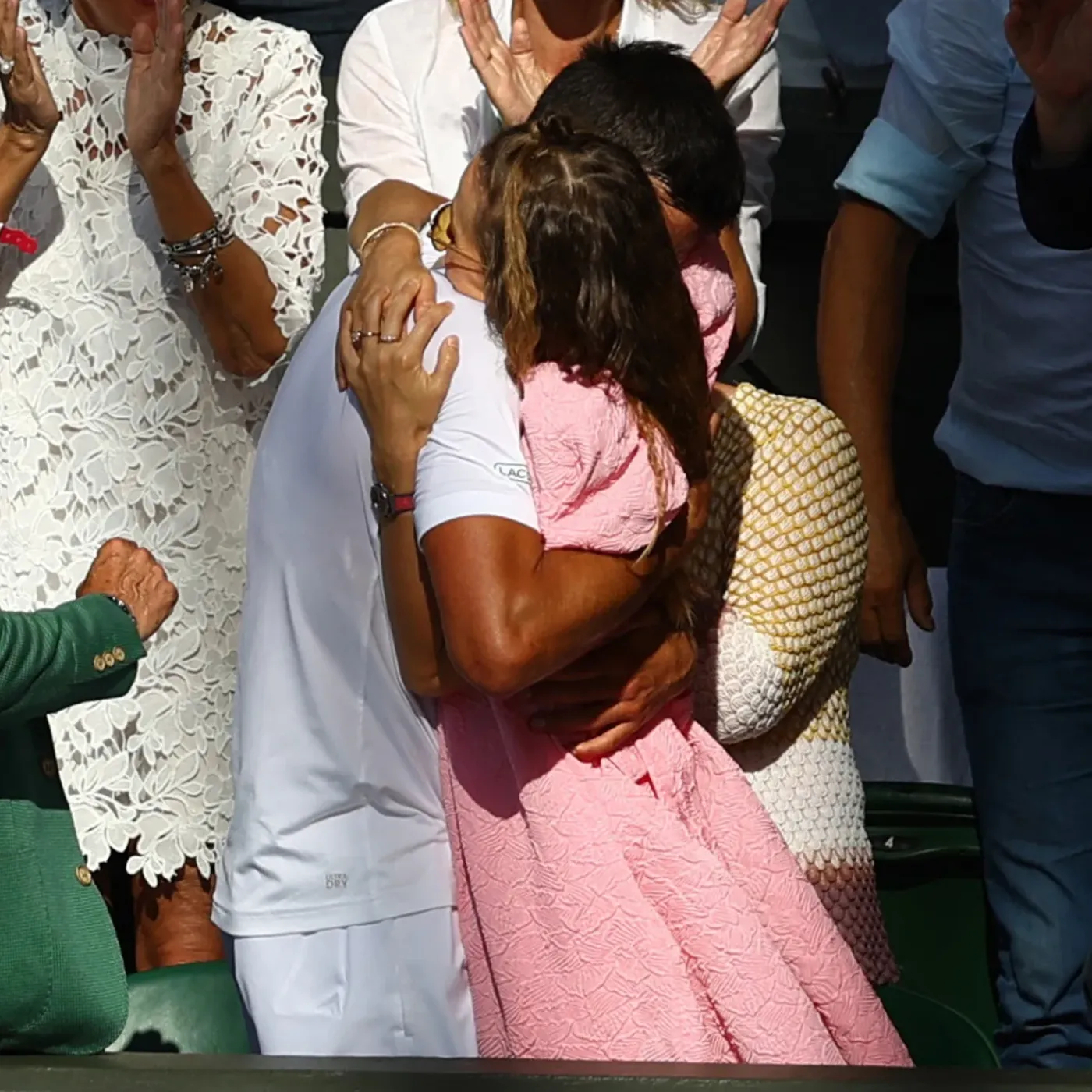
PTPA Takes Down Underground Forces: Djokovic Ignites the Biggest Legal Battle in Tennis History!
Novak Djokovic and the Professional Tennis Players Association (PTPA) have taken legal action against the sport’s top governing bodies, accusing them of anticompetitive restraints and abusive practices
PTPA Launches Legal Battle Against Tennis Authorities
The Professional Tennis Players Association PTPA, co-founded by Novak Djokovic, has filed a series of lawsuits against the Association of Tennis Professionals ATP, Women’s Tennis Association WTA, International Tennis Federation ITF, and International Tennis Integrity Agency ITIA. These legal actions have been initiated in multiple regions, including the United States, the United Kingdom, and the European Union.
According to the PTPA, these organizations have engaged in unfair practices that have exploited tennis players for years. The lawsuit seeks to expose what the PTPA describes as a systemic abuse of power, which has resulted in players being subjected to low earnings, unfair treatment, and an unhealthy playing environment.
A Long-Standing Conflict Between Players and Governing Bodies
The tensions between players and the governing bodies of tennis are not new. For years, professional players have voiced concerns about prize money distribution, ranking systems, and scheduling. However, these concerns have often been ignored or dismissed.
The PTPA was established in 2020 by Novak Djokovic and Vasek Pospisil to represent the interests of professional tennis players. Unlike the ATP Player Council, which operates under the ATP’s governance, the PTPA is an independent organization solely focused on advocating for player rights.
Key Allegations in the Lawsuit
The lawsuit filed by the PTPA includes multiple allegations against the tennis governing bodies, accusing them of engaging in anticompetitive practices that restrict player opportunities and earnings.
Prize Money Manipulation
One of the major accusations made by the PTPA is that the governing bodies have been fixing prize money, preventing players from earning their fair share of tournament revenue. According to the PTPA, tournament organizers and governing bodies collude to keep player earnings artificially low, despite the massive revenue generated by television rights, sponsorships, and ticket sales.
Excessive and Unfair Scheduling
Another critical issue raised in the lawsuit is the intense and unsustainable match schedule imposed on players. The PTPA has accused the tennis authorities of forcing athletes to compete in extreme conditions, often in 100-degree Fahrenheit heat or late-night matches that end at 3 AM.
This scheduling, according to the PTPA, prioritizes television ratings and sponsorship deals over player health and safety. Many players have suffered injuries and exhaustion as a direct result of this grueling schedule.
Use of Injury-Inducing Equipment

The PTPA has also highlighted the use of tennis balls that allegedly increase the risk of injuries. The lawsuit claims that different tournaments use inconsistent ball types, forcing players to constantly adapt to new conditions, which can lead to wrist, elbow, and shoulder injuries.
Players have previously spoken out about the negative impact of ball variations, but the tennis governing bodies have failed to take action. The PTPA argues that the lack of consistency in equipment regulation is yet another example of negligence by the authorities.
Restrictions on Sponsorships and Image Rights
The PTPA has also accused the ATP, WTA, ITF, and ITIA of imposing unfair restrictions on player sponsorships and image rights. According to the lawsuit, players should have greater control over their own brand and financial opportunities.
Currently, tennis governing bodies limit the types of sponsorship deals players can sign and place restrictions on advertising, reducing their ability to maximize earnings. The PTPA argues that these limitations prevent players from having financial independence and control over their careers.
Violation of Player Privacy
One of the most shocking allegations in the lawsuit is the claim that the tennis authorities have violated player privacy rights. According to the PTPA, players have been subjected to invasive searches of their personal devices, random drug tests in the middle of the night, and interrogations without legal representation.
These practices, according to the PTPA, amount to serious breaches of personal rights, creating a system where players are treated unfairly and without proper protections.
PTPA Declares That Tennis is Broken
Ahmad Nassar, the Executive Director of the PTPA, made a strong statement about the current state of professional tennis.
“Tennis is broken,” Nassar declared. “Behind the glamorous image that the governing bodies present to the public, players are trapped in an unjust system that exploits their talent, suppresses their earnings, and jeopardizes their health and safety.”
The PTPA insists that these legal actions are necessary to bring real change to the sport and ensure that tennis players are treated fairly.
Which Players Are Supporting the PTPA?
The PTPA is not just backed by Novak Djokovic and Vasek Pospisil. Several top-ranked players have joined the movement, including:
- Hubert Hurkacz
- Ons Jabeur
- Bethanie Mattek-Sands
- Taylor Townsend
- SaiSai Zheng
These players have all expressed their support for the PTPA’s mission and believe that the current system needs to be reformed.
What Does This Mean for the Future of Tennis?

The legal battle between the PTPA and tennis governing bodies could have significant consequences for the future of professional tennis. If the PTPA wins, it could lead to:
- Higher prize money for players
- More control over sponsorships and personal branding
- A safer and more balanced match schedule
- Better treatment and privacy protections for players
However, the ATP, WTA, ITF, and ITIA are expected to fight back aggressively. These organizations have historically resisted changes that would reduce their control over the sport.
Is This the Beginning of a Revolution in Tennis?
The PTPA’s legal action represents one of the biggest challenges ever faced by tennis governing bodies. Novak Djokovic and his team are determined to push for major reforms, but the outcome of this fight remains uncertain.
Will the PTPA succeed in breaking the power of the governing bodies and securing a better future for tennis players? Or will the established authorities maintain their grip on the sport?
One thing is clear. Tennis is at a crossroads, and the fight for change has only just begun.




















Post Comment